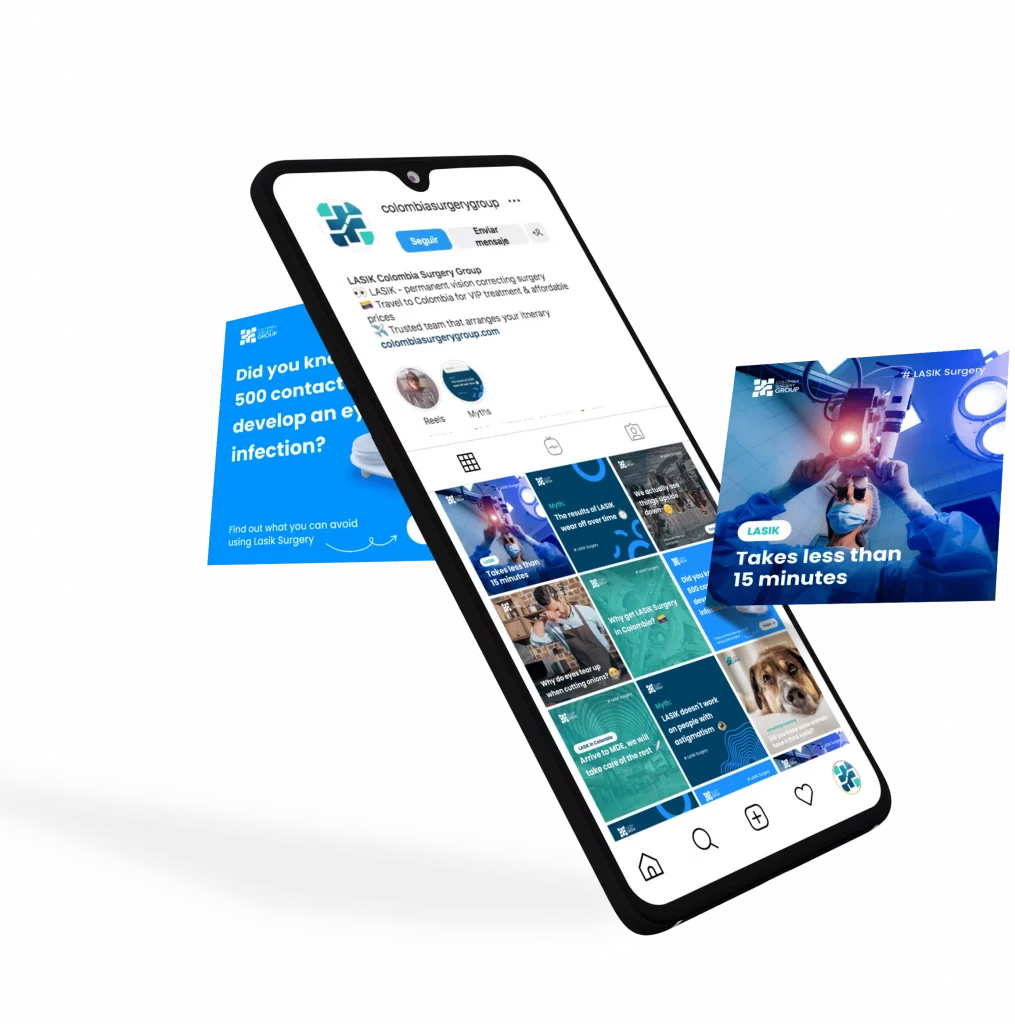Learn all about digital marketing for startups and what are the first steps to create a successful strategy.
To be more specific, Digital Marketing for Startups. Digital marketing is the use of online channels and tools to promote your brand, products, or services. It is a powerful and cost-effective way to build and grow your startup, as it can help you:
- Increase your visibility and awareness
- Communicate and interact with your customers
- Showcase your value and personality
- Generate leads and conversions
- Measure and optimize your performance
Are you ready to take your startup to the next level? Then keep reading and let’s get started!
Digital Marketing for Startups: a change of scenery
For startups, Digital Marketing is incredibly challenging and crucial. Startups are new ventures that aim to solve a problem, fill a gap, or create a new opportunity in the market. Although Startups have limited resources, time, and budget, they also have great potential for growth and innovation.
That’s why, if you have a startup, you need a different approach to marketing than established businesses. Digital marketing for startups can help you to:
- Validate your product-market fit and test your assumptions
- Build your brand identity and awareness
- Generate leads and conversions
- Increase your customer loyalty and retention
- Measure and optimize your performance and results
First steps in the startup marketing world

Branding for startups
This part of digital marketing is essential for startups because it helps you stand out from the competition, attract and retain customers, and build trust and loyalty. As well as a strong brand can also increase your visibility, credibility, and value in the market.
To generate and manage your brand identity, you need to follow a series of steps that, for this occasion, we have listed with specific questions that you should keep in mind when thinking about branding:
- Define your brand purpose: What is the problem you are solving and the value you are providing? What is your mission and vision? What are your core values and beliefs?
- Know your target audience: Who are your ideal customers, and what are their needs, preferences, and pain points? How can you reach them and engage them with your brand?
- Create your brand identity: How do you want your brand to look, sound, and feel? What are your brand name, logo, colors, fonts, tone of voice, and style?
- Develop your brand story: What is the story behind your brand, and how does it relate to your audience?
- Measure and improve your brand performance: How can you track and analyze your brand awareness, reputation, and loyalty? How can you get feedback and insights from your customers and stakeholders?
Your brand identity represents you to your potential customers and makes them connect with you! Leave it in our expert hands, and we will make your brand shine. Request a quote!
Your website is your showcase to the world

These are some of the elements that you should take in mind when thinking about making your web page:
- Keep it simple and clear: Ensure you overload your website with enough information, graphics, or features. Please focus on the essentials and ensure your visitors can easily find what they want.
- Highlight your value proposition: What makes your startup unique and valuable? What problem are you solving, and how are you different from your competitors? Feel free to answer these questions clearly and concisely on your homepage.
- Include social proof: Testimonials, reviews, ratings, awards, and logos of your clients or partners are potent ways to build trust and credibility.
- Optimize for conversions: Your website should inform, persuade, and motivate your visitors to take action. Use buttons, forms, and pop-ups to capture leads and drive sales.
A website is the second most crucial step in digital marketing for startups. It can distinguish between a successful company and one that fails to succeed.
Cazoo is a UK-based startup that offers a fast and convenient way to buy and sell cars online; it’s an excellent example of a fantastic website for startups. Its website has a simple, user-friendly interface, a clear value proposition, and a solid call to action.
Making a good and fast website is a challenging task for free tools. We design and build your startup website with special prices for entrepreneurs.
SEO will be your best friend
Having a great website is not enough if no one sees it. That’s why SEO is one of the keys to digital marketing for startups is SEO.
Based on the principle that a new startup is not well known, organic search engine optimization is your ally to reach more people and potential new customers.
Why is SEO important for startups? Here are some reasons:
- Attract organic traffic. People who search for keywords related to your business are more likely to be interested in your products or services.
- Build trust and authority in your niche. You can show your expertise and credibility to your potential customers by ranking high for relevant keywords.
- Generate leads and conversions. By optimizing your website and content for user intent, you can guide your visitors through the buyer's journey and persuade them to take action.
- Support your other marketing efforts. Creating valuable and engaging content can boost your social media presence, email marketing campaigns, and word-of-mouth referrals.
Apptega, a cybersecurity and compliance platform, knew how to harness the power of SEO. They migrated their website and started to use HubSpot’s SEO tools to find and fix technical issues, and their core page rank went from number 100+ to number three on Google.
Social networks are the key
If there is one thing that is part of the world of digital marketing for startups, it is social networks. Here are some social network advantages that can help your startup thrive with the public:
- Increase your visibility and reach. Creating and sharing valuable content can attract and engage your target audience, generate awareness, and drive traffic to your website.
- Communicate and interact with your customers. You can improve your customer service, satisfaction, and loyalty by listening to their feedback, answering their questions, and solving their problems.
- Grow your network and influence. By connecting with influencers, experts, and peers in your niche, you can learn from them, collaborate with them, and leverage their reputation and audience.
Your target audience in expert hands. Get a quote!

There is no single answer to the essential social networks a startup should have since it depends on several factors (the type of product or service you offer, the profile of your ideal customer, your competition, the budget you manage, etc.). However, some social networks can be a reference to get you started. Here are some of them:
- Facebook.
- X (Twitter).
- Instagram.
- TikTok.
- LinkedIn.
Consider using advertising campaigns
Advertising campaigns can help your startup in several ways, such as:
- Reaching a large and targeted audience: You can use advertising platforms like Google Ads or Meta Ads to create and display ads that match your audience's interests, demographics, and behaviors. You can also use keywords, hashtags, and trends to appear in relevant searches and conversations.
- Creating a memorable and distinctive brand: You can use advertising campaigns to showcase your unique value proposition, personality, and story.
- Measuring and optimizing your performance: Advertising tools like Google Analytics or HubSpot are the key to tracking and analyzing your campaigns' results. You can see how many people saw, clicked, or converted from your ads; valuable data to know more about your audience.
- Some research about channels and audience.
- Define your target audience.
- Set your objectives.
- Choose your media.
- Create your message.
- Monitor your results.
Start email marketing as soon as you can
- Building loyalty and trust: Email marketing is not just about selling; it is a channel you can and should use to connect with your audience. You can even use email to share your brand story, values, and personality.
- Leveraging your data: Using email marketing tools, you can collect and analyze data from your subscribers, such as their name, email, location, behavior, etc. You can use this data to segment your list, personalize your messages, and optimize your campaigns.
- Driving conversions and sales: Newsletters, welcome emails, abandoned cart emails, etc., can help you guide your subscribers through the buyer's journey and encourage them to take action, not to mention the offers, coupons, free trials, etc., to increase your sales.
The wisest decision
is to leave your marketing operations to experts.
Request a quote for your startup



